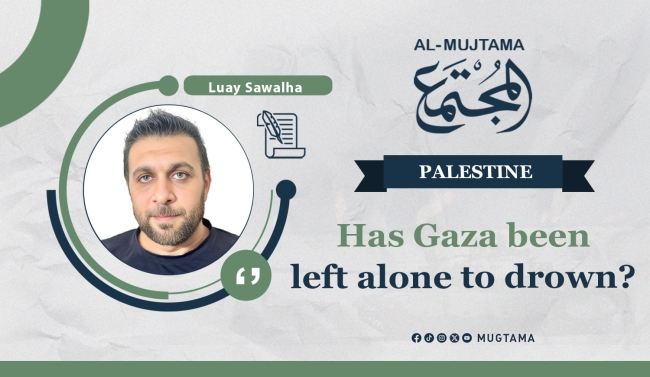In the midst of the explosive Palestinian scene, where chapters of Israeli aggression against Gaza continue relentlessly, a painful question arises: Has Gaza been left to drown alone in a sea of blood? Does Palestine still represent the essence of the Arab cause, or has the Arab nation chosen the path of complacency and submission?
The announcement of a ceasefire between Israel and Hezbollah, at this critical time, has raised several questions, most notably the fate of Gaza in the midst of this ongoing conflict, and to what extent can the nation rise united in defense of the Palestinian cause, the cause of rights and dignity.
Gaza has always been the frontline defense of the Arab nation, paying the price of resistance on behalf of everyone, besieged between violent Israeli aggression and an increasingly dark Arab silence. Every house destroyed by aircraft and every tear shed by mothers there is not just a Palestinian wound, but a wound of an entire nation that has abandoned its national and humanitarian duty.
The announcement of a ceasefire between Israel and Hezbollah, which came without achieving any tangible change on the Palestinian scene, added a sense of deception to many. Although such steps may be interpreted as a tactical maneuver to avoid wider regional escalation, they reinforce the feeling that Gaza has been left alone.
On the other hand, we must realize that the resistance in Gaza is not isolated from its surroundings, and although support may not always be public or sufficient, Arab peoples, even if their governments are restrained, still believe that Gaza represents the conscience and dignity of the nation.
The absence of unified Arab resistance is not a recent phenomenon, but a reflection of political fragmentation that has deepened over decades due to foreign domination and normalization. With every new normalization agreement, the gap between regimes and peoples widens, and the Palestinians' sense of isolation grows.
The real question we should be asking is not why unified resistance has been absent, but how can it be revived in the midst of this intertwined reality?
The road to unified resistance starts from within the Palestinian territories. The long struggle has produced differences in vision and means between Palestinian factions, but the biggest challenge lies in uniting the internal front to have one voice against the occupation. Historical experiences have shown that internal unity is capable of inspiring the Arab nation and uniting its ranks.
Arab peoples, despite all suppression and marginalization attempts, still see Palestine as their primary cause. With every protest or chant raised in the Arab world, the spiritual connection between the peoples and the Palestinian cause becomes evident. This popular awareness can serve as a basis for pressuring regimes to reclaim their historical role.
Any attempt to reach a unified Arab resistance requires a courageous confrontation with the escalating normalization wave. This confrontation is not just a rejection of agreements legitimizing occupation, but a defense of the honor of the nation and its right to determine its destiny. Building regional alliances between resistance forces in Lebanon, Palestine, and Yemen could serve as a model for building a unified Arab front against the occupation and its supporters.
Despite all the pain, Gaza remains an icon of resilience and unwavering will that knows no defeat. Every stone raised against the occupation, and every voice screaming for the truth, confirms that Gaza will not sink, because resistance is not just a weapon but an eternal idea in the hearts of millions.
Hope for Arab unity is still alive but requires bold steps starting from Gaza, where a new history for the nation is being written. Supporting Gaza now is not an option but a duty that tests the humanity of the world and the dignity of the nation. Resistance is not just the battle of Palestinians alone, but the struggle of the entire nation for justice, freedom, and dignity. As long as Gaza resists, the nation remains alive, and as long as the occupation persists, the path to liberation has not been closed yet.


